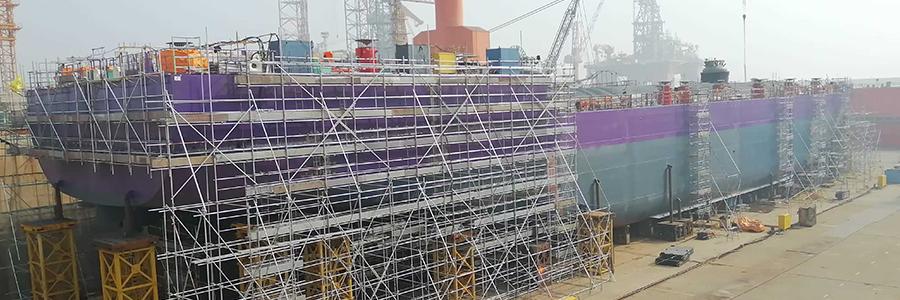When the Schulte Group announced the expansion of its fleet portfolio by ordering its first LCO2 tanker, it was undoubtedly entering uncharted territory. Not only is it the first privately financed vessel of its kind, but it is also a completely new ship segment without any blueprint.
Transporting liquid CO2 by ship for innovating carbon capture and storage (CCS) processes is a new field. Although there are a few CO2 tankers in operation for the beverage industry, they are not comparable with the new LCO2 tanker being built for the Northern Lights CCS project.
“Nevertheless, we can of course draw on our many years of extensive experience in the gas carrier segment. We have been active in this area for almost 60 years,“ explains Tim Mauersberger, Senior Business Analyst at the Maritime Energy Centre (MEC). The MEC is the Think Tank of the Schulte Group for all activities related to LNG, alternative fuels and liquid CO2 shipping.
In addition to the MEC and Bernhard Schulte, the Schulte Group’s ship owning arm, which commissioned the newbuilding, other group entities are also contributing their expertise to the project. The construction is being overseen by the newbuilding division Schulte Marine Concept (S.M.C.), including plan approval and construction supervision. Ship management services will be provided by Bernhard Schulte Shipmanagement (BSM).









